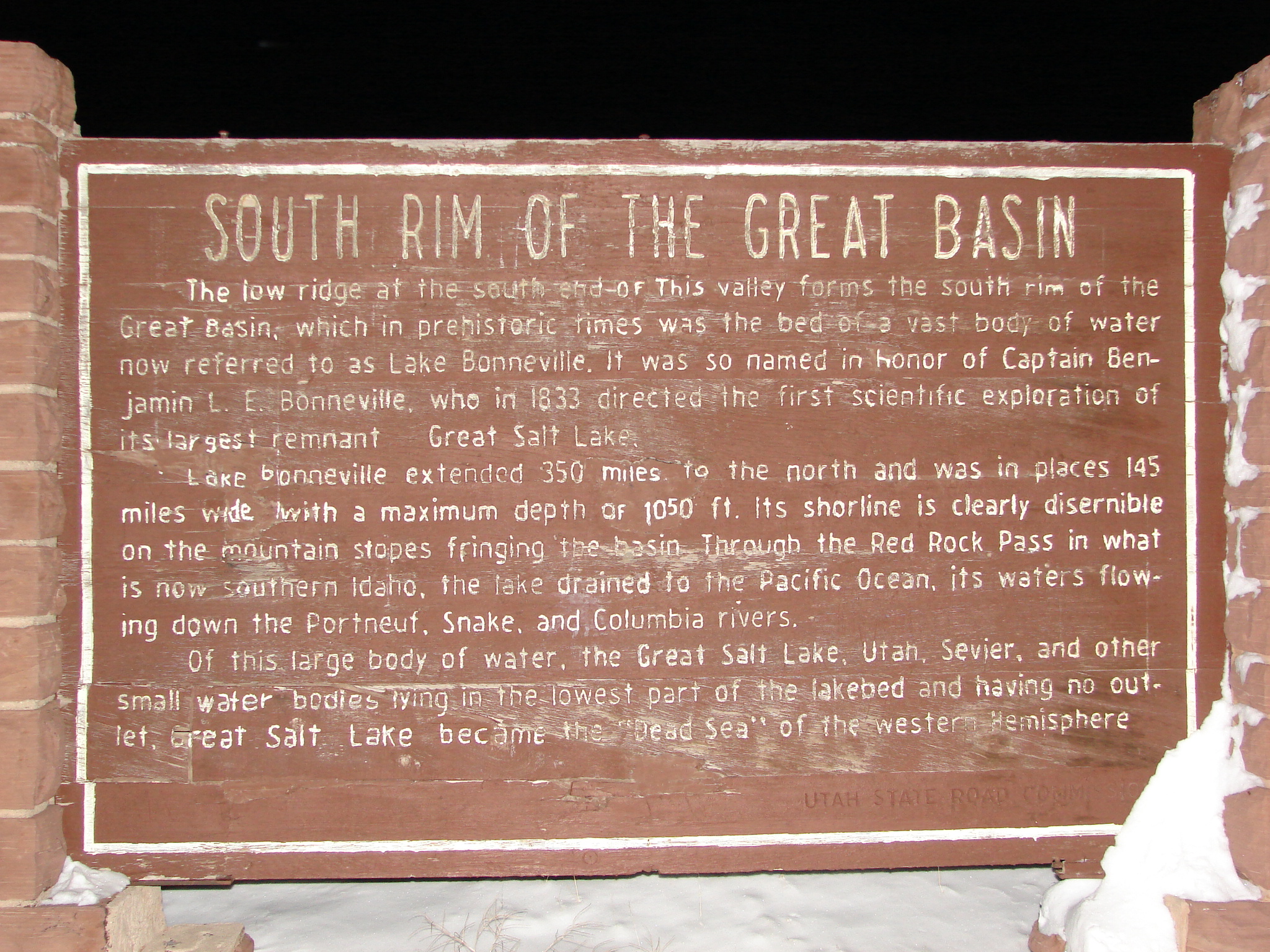
The low ridge at the south end of This valley forms the south rim of the Great Basin, which in prehistoric times was the bed of a vast body of water now referred to as Lake Bonneville.
Lake Bonneville extended 350 miles to the north and was in places 145 miles wide with a maximum depth of 1050 ft. Lake Bonneville was a prehistoric pluvial lake that covered much of North America's Great Basin region. Most of the territory it covered was in present-day Utah, though parts of the lake extended into present-day Idaho and Nevada. Formed about 32,000 years ago, it existed until about 16,800 years ago, when most of the contents of the lake were released through the Red Rock Pass in Idaho. Many of the unique geological characteristics of the Great Basin are due to the effects of the lake.
Like most, if not all, of the ice age pluvial lakes of the American West, Lake Bonneville was a result of the combination of lower temperatures, decreased evaporation, and higher precipitation that then prevailed in the region, perhaps due to a more southerly jet stream than today's. The lake was probably not a singular entity either; geologic evidence suggests that it may have evaporated and reformed as many as 28 times in the last 3 million years.
To log this cache as "Found," e-mail us the answers to the following questions and(optional) include a photo in your online log of you at the cache site with your GPS:
Email us and tell us :
- the name of the first scientific explorer of Lake Bonneville and when he explored it.
- what happened to the lowest parts of the lake and why.
- When you get home please read up on The Great Basin and Lake Bonneville, there is A LOT of information out there, and put something interesting learned about them in your online log.